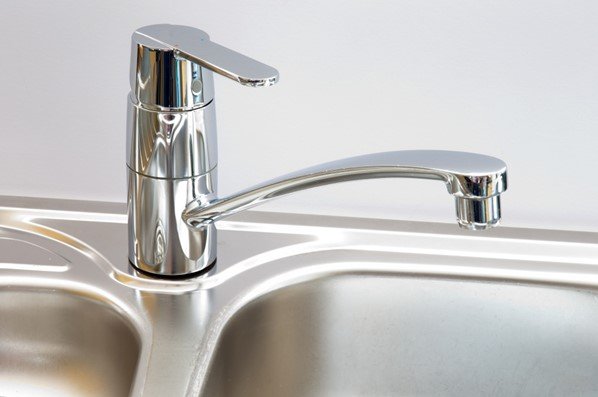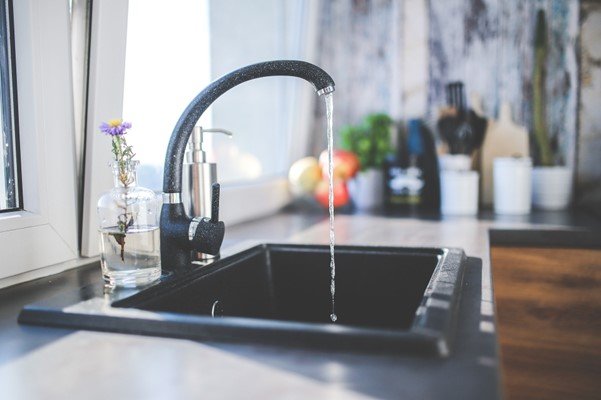Kitchen sinks, even though one of the most used fixtures in many homes, don’t often receive proper attention when it comes to maintenance. When they are neglected, they lead to clogs and blockages that prevent water from flowing freely.
Over time, stains and discoloration might build on the sinks, making them appear unsightly. Additionally, improper care may cause bacteria and mold accumulation, which could lead to certain health risks.
Thankfully, all these can be avoided through proper care. By adopting the right maintenance strategies, you can keep your kitchen in the best condition. In this article, I will provide effective tips on how to care for your homes properly.
Tips For Caring for Your Home’s Kitchen Sinks
Use Baking Soda and Vinegar for Stain Removal
Both baking soda and vinegar are natural cleaners that are effective at getting rid of stains. By mixing them, you create an excellent solution for stubborn stains.
Therefore, a thick paste is created by mixing them and applying it directly to the stains. Let it sit for about 10 minutes to break down the mineral deposits and use a soft cloth to scrub it gently. Next, rinse thoroughly with water. Doing this will help remove rust stains without harming the sink surface.
For a detailed guide on how to clean your sinks using baking soda, visit:
https://www.wikihow.com/Clean-Your-Sink-with-Baking-Soda.
Prevent Rust by Drying Sink After Use
Leaving water to sit on the surface may cause rusting over time. Therefore, to extend its life, ensure that it is dry thoroughly after each use. You can use a soft cloth or towel to clean the surface and remove water.
This also prevents water spots and mineral deposits from forming. Doing this will not only keep it in good condition but also extend its lifespan by protecting it from the damaging effects of rust.
Install a Sink Grid for Protection
A sink grid, often designed with stainless steel, is a metal steel placed at the bottom of kitchen sinks. They help prevent or reduce the occurrence of scratches and dents often from heavy pots. When installed at the bottom of the kitchen sinks, they will serve as a protective barrier. The grids will also support easy water movement, thereby improving the life of the sink.
Avoid Abrasive Cleaners

Abrasive cleaners such as steel wool pads and scouring powders are made with harsh chemicals. And constantly using them on your kitchen sink can cause damage by scratching or dulling the surface.
If you are using a stainless-steel sink, these cleaners can cause tiny scratches that could house dirt and bacteria – making it hard to clean and maintain. In the long run, those scratches can lead to rust and ruin its durability.
Porcelain sinks, even though durable, could also get scratched, thereby ruining their smooth finish.
Regularly Clean the Faucet Aerator
Consider unscrewing and cleaning the faucet aerator every few months to remove mineral deposits and dirt that may affect water flow. You could soak the aerator in a vinegar mixture to dissolve any buildup. This ensures the faucet remains in good condition.
Regularly Clean the Drain
Cleaning the drain regularly can help prevent clogs and keep the area smelling fresh. Begin by taking out any visible food particles from the drain. Then, use a mixture of baking soda and vinegar to clean the drain. Allow it to sit for at least 10 minutes before using warm water to flush away any remaining residues.
Additionally, avoid pouring grease or oil down the drain. These items can settle and clog your pipes, which may lead to blockages and costly plumbing repairs. Instead, allow grease to cool off and dispose of it in the trash.
Use Hydrogen Peroxide for Deep Cleaning
When cleaning the fixture deep, use hydrogen peroxide. It’s a safe and effective disinfectant that can get the job done. Simply spray or pour a good amount over the surface, especially those sinks that easily get discolored.
Leave it for a few minutes to remove stains and kill bacteria, then rinse thoroughly with water. This will help clean your sink thoroughly without the use of harsh chemicals.
Click here to learn more about hydrogen peroxide.
Avoid Hot Pans
To protect your kitchen sink from getting damaged, avoid placing hot pans on it. Extreme heat exposure may cause warping, discoloration, or even cracks in porcelain or composite sinks. Therefore, allow the pans to cool first before putting them in the sink.
Check for Leaks Regularly
The area under your sink is likely to leak, especially when not properly cared for. Therefore, you should regularly check for these leaks. This is because even small leaks can support mold growth and water damage, ruining the plumbing.
So, when you notice any leaks, consider tightening connections or changing the worn-out washers and seals. You may also seek the services of professionals to get better results.
Choose the Right Cleaner for Composite and Granite Sinks
Both are pretty durable, but without the right care, they could also get scratches and discoloration. So, avoid using any harsh chemicals on them.
On the contrary, go for whatever cleaner is specified by your manufacturer or use a gentle dish surface. Cleaning your composite or granite sinks properly and using the right products helps significantly improve their lifespan and keep them in good condition.
Polish Stainless Steel
This particular option will need regular polishing to keep up its stylish appearance. Start by cleaning the food residue before moving to polishing. Afterward, use a soft cloth with either stainless steel polish or olive oil and wipe it all over your sink. This should help you get rid of water spots and leave a shining finish.
Visit https://www.linkedin.com/pulse/types-kitchen-sink-best-sinks-civil-engineering-updates/ to learn more about types of kitchen sinks.
Final Words
Following effective maintenance and a regular cleaning routine for your kitchen sinks are important, especially if you want to enjoy maximum use. This will help you avoid any scratches, discoloration, and surface marks.
So be sure to clean your drains at least once per week, dry the sink after each usage, and avoid using abrasive cleaners. With the tips of this article, you can keep your kitchen sink looking good and durable.



